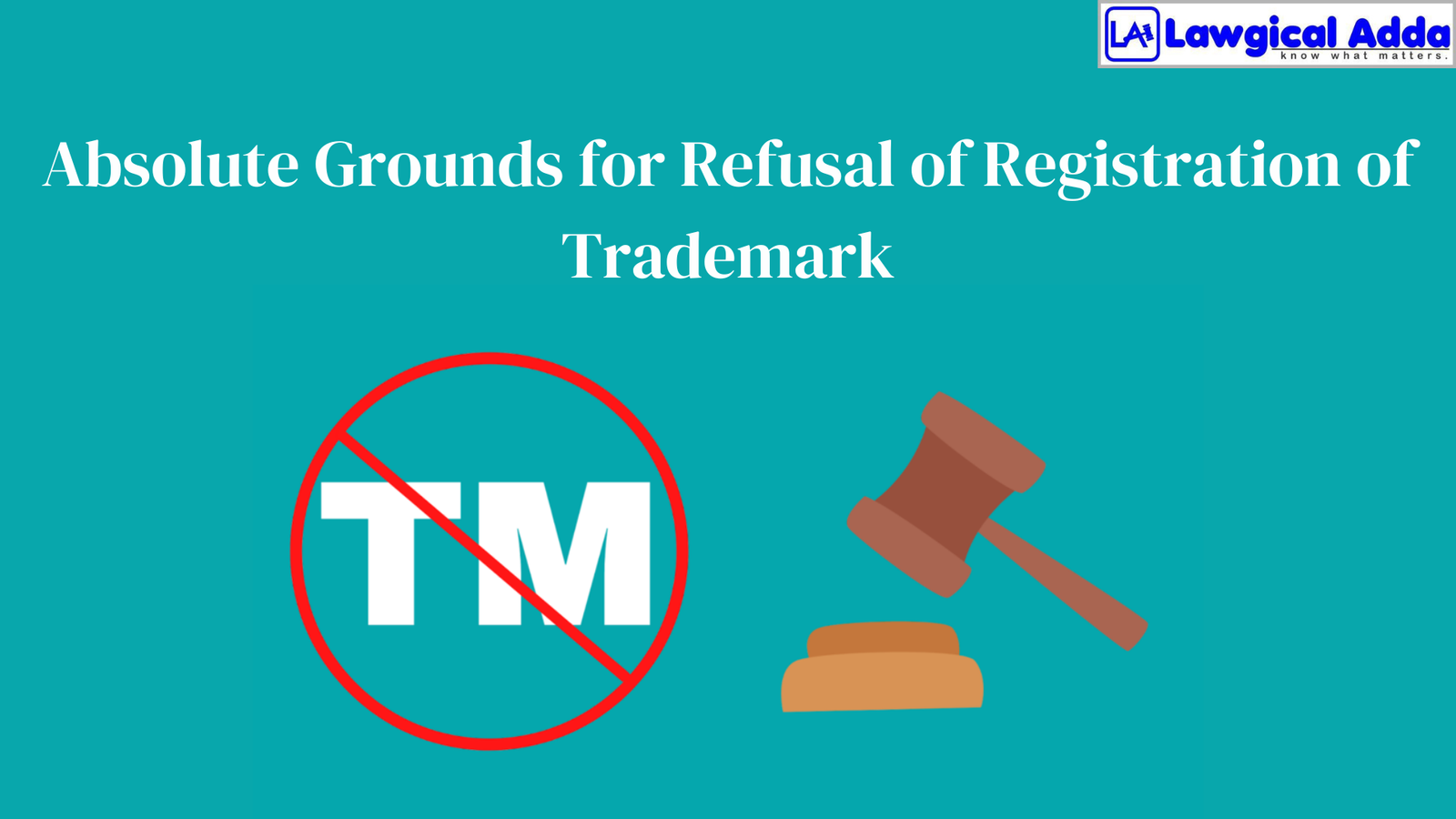Absolute Grounds for Refusal of Registration of Trademark

Table of Contents
Introduction
A trademark registration application may typically be challenged for registration based on absolute or relative grounds, such as conflict with already-registered trademarks and well-known marks or registration prohibition.
This article examines the absolute grounds for refusal of registration of trademark categories.
Absolute grounds for refusal of registration of trademark : Section 9
If the proposed mark is determined to meet the requirements outlined in Section 9 of the Trademark Act, 1999, the application process for a trademark award will be terminated. The reasons include:
- Marks that lack any unique characteristics.
- Indicators or marks that are used in trade to specify the amount, caliber, character, kind, values, intended use, or place of origin of products or services provided.
- It is not permitted to register marks or indicators that have become commonplace in the present language or the sincere and established practices of the trade.
- The mark’s nature allows it to mislead the public or create confusion.
- The mark it contains or consists of any material likely to harm any class or segment of Indian people’s religious sensitivity.
- If the mark includes or includes offensive or scandalous content.
- If the Emblems and Names (Prevention of Improper Use) Act, 1950 (12 of 1950) forbids the use of the mark.
- Marks arising from the actual characteristics of the items.
- Marks that significantly increase the goods’ worth. M
- Marks whose form significantly raises the items’ worth.
The legislative purpose behind these absolute grounds of refusal is to safeguard the legitimate interests of the public and traders who are sincere and legitimate users of various marks connected with their goods and services.
These grounds are related to the benefit of public policy.However, if a mark has developed a “distinctive character” over time and is now a “well-known trademark,” it won’t be denied registration as long as the applicant can substantiate the claim.
Grounds for Refusal of Registration of Trademark in General : Section 11
The Act’s Section 11 provides relevant grounds for refusal of registration of trademark based on how closely the applicant’s trademark resembles already registered trademarks. For instance, registration of a trademark that is the same or similar to an already-registered trademark will be denied.
Suppose you would like to register “Tasty Pie” as a trademark for your bakery. However, your application will likely be rejected if “Tasty Pies” is already a registered trademark in the same industry.
This is because the trademark is too similar to an already-registered trademark and could cause confusion among consumers. The nature of the products and services to which trademarks are applied and the possibility of customer confusion are considered when assessing the similarity between trademarks.
The registration will be denied if the mark is identical to a well-known trademark that already exists in India. It is not permitted if the mark’s use is restricted by copyright or passing-off laws.
Provided a trademark is identical or similar to an earlier one, it may still be registered provided the earlier mark has been abandoned, has not become distinctive through use, or has the permission of its prior owner to be registered.
If the trademark will unfairly benefit from or harm the previous trademark’s distinctive reputation, the Registrar may refuse to register it.
Overcoming Objections in Absolute Grounds for Refusal of Registration of Trademark
The trademark applicant may provide evidence to support the claim that the mark’s earlier use has given it a unique character to overcome a trademark objection under absolute grounds for denial. Any of the following are examples of what could be included in an affidavit:
- To demonstrate that the mark had to be utilized by the applicant to determine the items’ trade origin.
- As a result of this use, the mark is now relied upon by the relevant public (or a sizable section of it) to identify the trade origin of the items during transactions.
The Trademark Officer must be satisfied that the mark applied for has, by itself, come to foster a concrete expectation among the relevant public that goods bearing that mark originate from, or are under the control of, a single undertaking if the mark is only one of many used by the undertaking to identify the trade origin of the goods.
Secure your intellectual property with Lawgical Adda. Whether it’s Trademark Registration, Patent Registration, Design Registration, or handling Trademark Opposition, we’ve got you covered.
Let us guide you through the process contact us today to protect your innovations. Reach out to Lawgical Adda for expert guidance. Contact us today!







